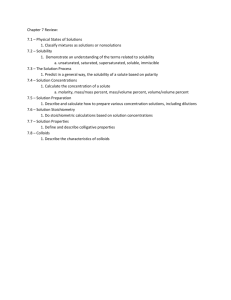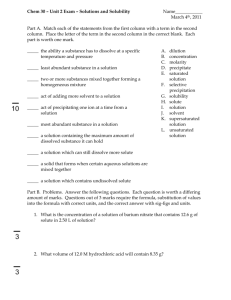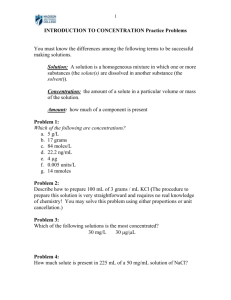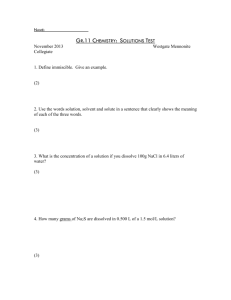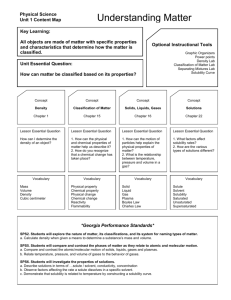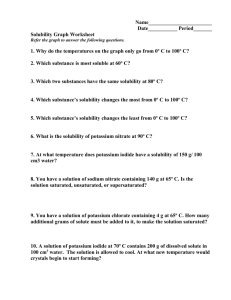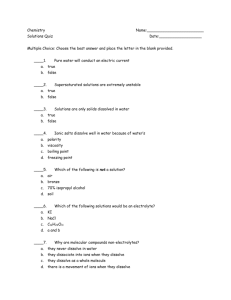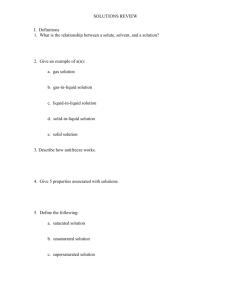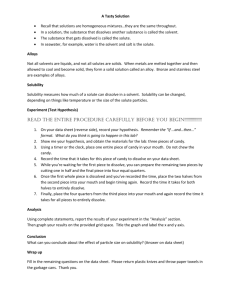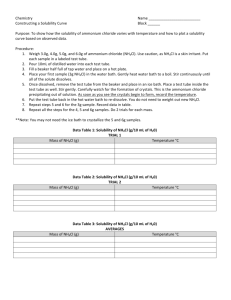Temperature and Solubility Virtual Lab
advertisement
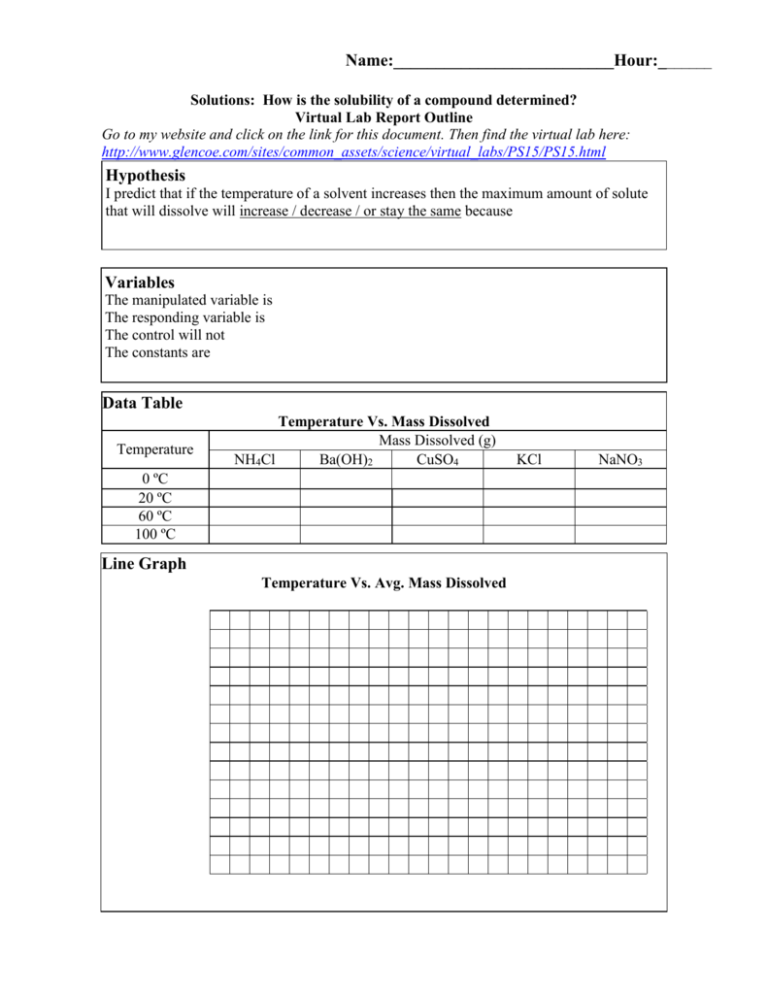
Name:__________________________Hour:_______ Solutions: How is the solubility of a compound determined? Virtual Lab Report Outline Go to my website and click on the link for this document. Then find the virtual lab here: http://www.glencoe.com/sites/common_assets/science/virtual_labs/PS15/PS15.html Hypothesis I predict that if the temperature of a solvent increases then the maximum amount of solute that will dissolve will increase / decrease / or stay the same because Variables The manipulated variable is The responding variable is The control will not The constants are Data Table Temperature Temperature Vs. Mass Dissolved Mass Dissolved (g) NH4Cl Ba(OH)2 CuSO4 0 ºC 20 ºC 60 ºC 100 ºC Line Graph Temperature Vs. Avg. Mass Dissolved KCl NaNO3 Results The results demonstrate if the temperature of a solvent increases then the maximum amount of solute that will dissolve will increase / decrease / or stay the same as shown by the following data: NH4Cl increased from _____ g at 0º to _____ g at 100º, Ba(OH)2 increased from ____ g at 0º to ____ g at 100º, CuSO4 increased from ____ g at 0º to ____ g at 100º, KCl increased from ____ g at 0º to ____ g at 100º and NaNO3 increased from ____ g at 0º to ____ g at 100º. Conclusion I predicted that if the temperature of a solvent increases then the maximum amount of solute that will dissolve will increase / decrease / or stay the same. The data supports / fails to support my hypothesis because when the temperature increased by ________ ºC the maximum amount of solute that dissolved increased / decreased by ________ g OR stayed the same. Apply 1. When the temperature of the solute increases the particles of the solute move faster / slower / at the same speed. 2. Is solubility a physical property? Justify your answer. 3. Can solubility be used to help identify a substance? Justify your answer. 4. Does mass change the physical property of a substance? 5. Does volume change the physical property of a substance? 6. Based upon the solubility determined in this virtual lab, how many grams of NH4Cl should dissolve in 1 ml of water at 20ºC? Show your work! 7. Based upon the solubility determined in this virtual lab, how many grams of NH4Cl should dissolve in 200 ml of water at 20ºC? Show your work! Solutions: How is the solubility of a compound determined? Virtual Lab Report Outline Open NAL on your desktop. Open "Glencoe Physical Science" virtual labs. Open virtual lab. Problem If the temperature of a solvent increases then will the maximum amount of solute that will dissolve increase / decrease / or stay the same? Hypothesis I predict if . . . then . . . will increase / decrease / or stay the same because . . . Variables Independent variable is . . . Dependent variable is . . . Control variable is . . . Constant variables are . . . (Identify and list at least 3) Experiment Test hypothesis in an experiment & record data in a data table (title, labels, units) Data Analysis Analyze data by averaging trials and then graphing averages. Results The results demonstrate if . . . then . . . as shown by the following data: . . . avg. #, avg. #, . . . avg. #. ... Conclusion I predicted if . . . then . . . The data supports / fails to support my hypothesis because when the independent variable increased / decreased by # the dependent variable increased / decreased by # OR stayed the same. Apply Questions 1. When the temperature of the solute increases the particles of the solute move faster / slower / at the same speed. 2. Is solubility a physical property? Justify your answer. 3. Can solubility be used to help identify a substance? Justify your answer. 4. Does mass change the physical property of a substance? 5. Does volume change the physical property of a substance? 6. Based upon the solubility determined in this virtual lab, how many grams of NH4Cl should dissolve in 1 ml of water at 20ºC? Show your work! 7. Based upon the solubility determined in this virtual lab, how many grams of NH4Cl should dissolve in 200 ml of water at 20ºC? Show your work!
